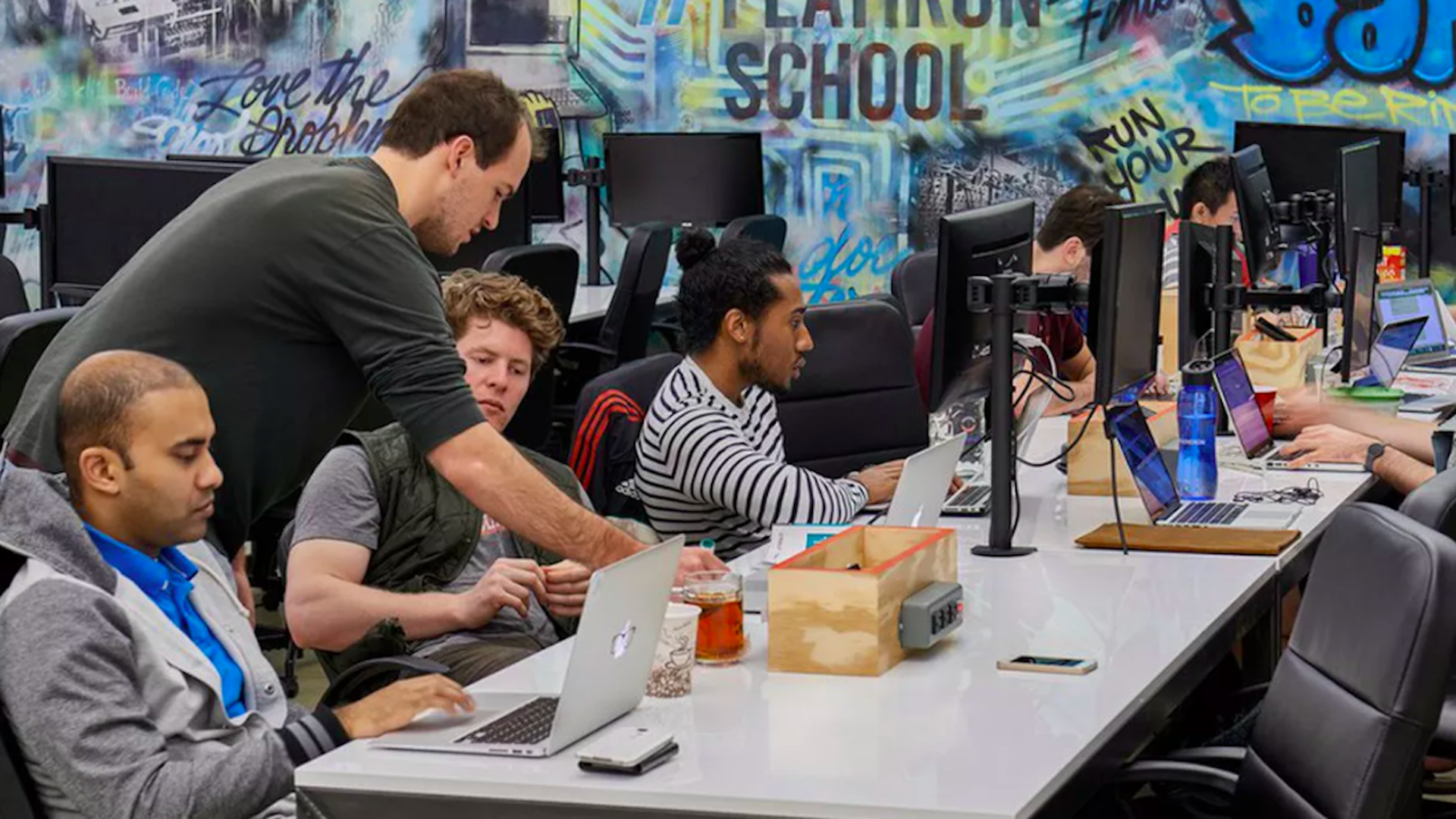For education today, betting your income tomorrow
Add Axios as your preferred source to
see more of our stories on Google.

Photo: Flatiron School
Amid a political uprising against student debt, some colleges and skills schools are offering a tuition scheme in which students commit to paying a fixed percentage of their after-graduation salary for five or more years.
What's happening: The system, called "Income Share Agreements," responds to what many experts call a student debt crisis: some 44 million Americans now owe some $1.5 trillion, and most of the Democratic presidential candidates are calling for some form of free college or trade school, and debt forgiveness.
- ISAs look a lot like loans, and typical terms result in students paying back 150% to 250% of the original tuition.
- But loans have much the same results, and ISAs are missing a key downside to straight borrowing — you shouldn't be able to default on one because you typically only start repaying once you are employed and earning a certain minimum income.
Driving the news: In an announcement on Thursday, the Flatiron School, a data bootcamp owned by WeWork, said it will fund $100 million in ISAs to future students. Offered in WeWork offices and in online versions, Flatiron courses are $15,000 in tuition.
- After graduation, you begin repaying the tuition at 10% of your gross salary as long as you are earning $40,000 or more. If you earn, say, $70,000 a year, you would end up repaying $21,500 over approximately five years.
- "In any month they are not employed or earning the equivalent of $40,000 or more a year, they don't pay. With student loans, you owe regardless of if you work," said Adam Enbar, CEO of the Flatiron School.
The backdrop: The idea of promising a portion of your future income as a form of investment in your potential goes back to 1945, and a book by Nobel laureate economists Milton Friedman and Simon Kuznets.
Many experts call student loan programs a favorable aspect of the U.S. higher education system since they allow students to go as far as they can academically, all the way through a world-class doctorate. "If you are going for a master's degree, there is no limit to what you can borrow. You can do income-based repayment," said Kevin Carey, an expert at New America.
- But many student also get in over their head, either from borrowing too much or failing to get a job paying enough.
- So in 2016, Purdue University, reaching back to the Friedman-Kuznets idea, began a still-small trend among universities by offering ISAs to its students.
The bottom line: ISAs are not the answer to the student-debt problem. In a vocational school such as the boot camps, they offer financing for students who cannot afford to pay monthly. Experts say that, in most cases, loans are still the best option for financing college. "Because ISAs are a shiny object, it doesn't mean they are the best option," Carey said.
